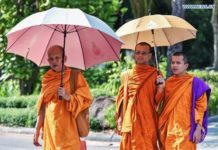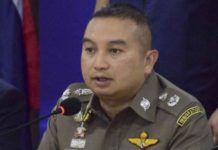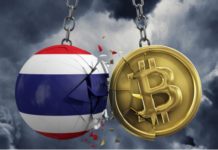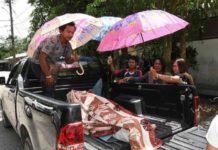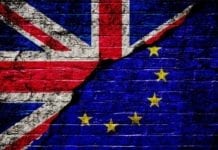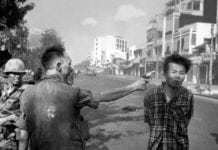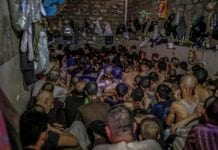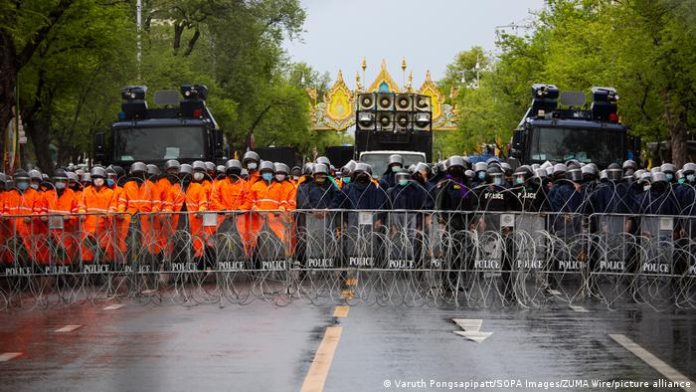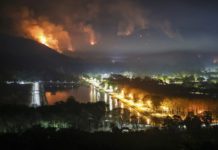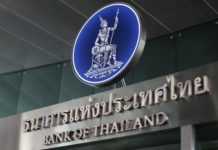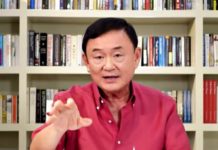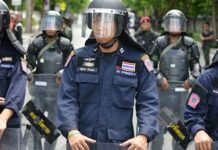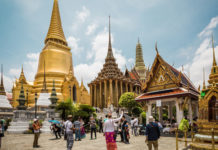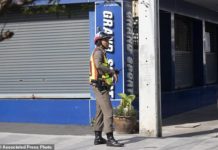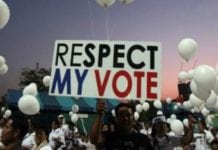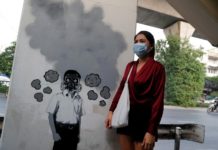Repeated extensions of Thailand’s emergency legislation have granted Prime Minister Prayut Chan-o-cha sweeping powers to curb the spread of COVID-19, but critics have warned that these present a risk to civil liberties.
“The emergency decree… has granted the prime minister broad powers… and has threatened the right to freedom of expression and access to information which is an integral component of the right to health, especially in the context of a global pandemic,” Josef Benedict, a researcher at the global civil society alliance CIVICUS Monitor, told DW.
While Thailand was largely successful in containing the pandemic for much of last year, it is now facing a surge in coronavirus cases and a rising death toll. Hospitals are under severe strain.
New daily infections in the Southeast Asian country have surpassed 10,000 for six consecutive days. Thai authorities reported a record 13,655 new COVID-19 cases on Thursday.
In addition to the mounting public disapproval of the government’s handling of the pandemic, there are concerns about its renewed efforts to counter fake news related to the outbreak.
Critics fear that Prayut’s administration will use the emergency to further restrict freedom of expression and of the media.
“Attempts by the Thai authorities to crackdown on misinformation and ‘fake news’ on social media seem to be a cover for repressive actions against those who are critical online of the government’s handling of the pandemic rather than about protecting health,” Benedict said.
Spreading the truth now punishable
On July 10, the government amended clauses in the emergency decree on free speech, banning the sharing of information that could incite public fear or spur unrest with regards to the COVID-19 pandemic, even if the information is accurate.
Human rights group Internet Law Reform Dialogue (iLaw) pointed out that the term “fake” has been dropped from the new order, meaning the distribution of any information deemed to incite fear — regardless of its veracity — could be punished with prison time or a fine.
The move has raised concerns about how the authorities will interpret and enforce the new law, which could give them free rein to crack down on opponents.
“Thai authorities must address COVID-19 through measures that are human rights compliant, using restrictions only as long as they are proportionate, temporary and clearly limited to what is necessary to protect public health,” said Ming Yu Hah, Amnesty International’s Deputy Regional Director for Campaigns.
“People should be able to comment freely on social media about the government’s response to the COVID-19 crisis without any fear of facing criminal charges,” she added.
Misinformation or scrutiny
Vague wording that leaves legal interpretation up to the Thai authorities is nothing new.
“Phrases like ‘distortions’, ’causes panic’ and ‘undermines morals’ have been part of Thai political discourse for decades and highlight the authoritarian tendencies of its leaders,” James Buchanan, a researcher on Thai politics, told DW.

While misinformation online about the pandemic is an issue that needs addressing, Buchanan questions what the aim of the law is and whether it may end up hampering the fight against COVID-19.
“The risk is that a lot of the genuine misinformation that may undermine public health efforts is ignored while new legislation is abused to silence dissenting voices and enable the authorities to escape scrutiny over its handling of the pandemic,” Buchanan said.
Continued campaign against civic freedoms
Thailand has a sweeping range of laws to regulate online content. Human rights groups have criticized the government for abusing legislation to restrict people’s basic liberties of peaceful assembly and freedom of expression.
The Computer Crime Act, which was introduced in 2007, for example, is “an overly broad piece of legislation that has since been amended to make it even more repressive,” according to Buchanan.
“Since the military coup in 2014 we have seen an all-out assault on civic freedoms in Thailand under the Prayut regime with the introduction of a range of restrictive laws being used to stifle dissent and criminalize activists, the targeting of the opposition, a systematic crackdown on protests with the police using excessive and unlawful force and recent attempts to push through a restrictive NGO law to control civil society,” Benedict told DW.

Protesters met with force
In defiance of the new rules banning gatherings of more than five people, pro-democracy protesters marched to Government House on Sunday to call for Prime Minister Prayut Chan-o-cha’s resignation. They were met with water cannons and riot police armed with tear gas and rubber bullets.
It was the latest in a series of anti-government protests held in recent weeks amid mounting public frustration over the rising number of infections and the devastating effects of the pandemic on Thailand’s economy.
“Attempts to stifle freedom of expression are the regime’s way of trying to maintain control of an old political order that seems to be crumbling around them,” Buchanan explained.
“When you add the pandemic situation into that equation, I can see why the Thai elites might be panicking,” he added. – dw.com

